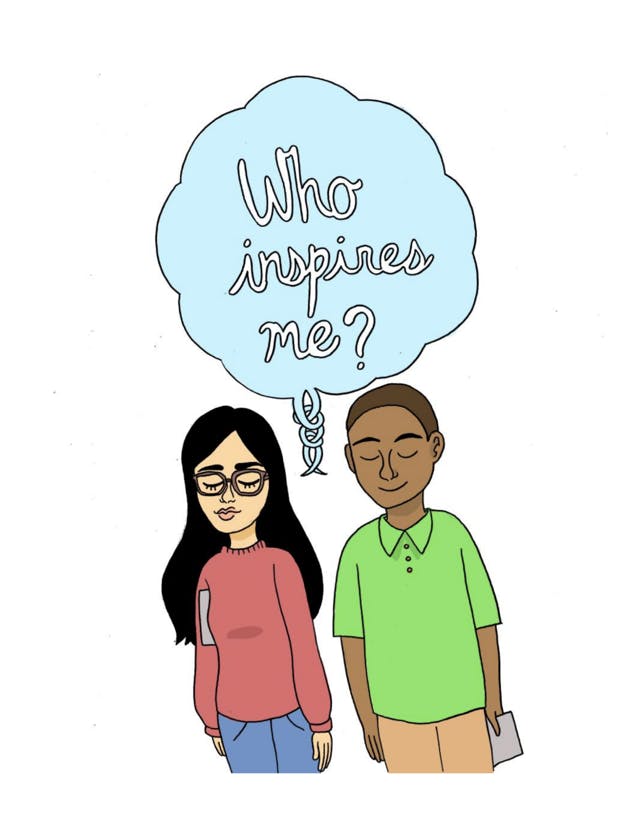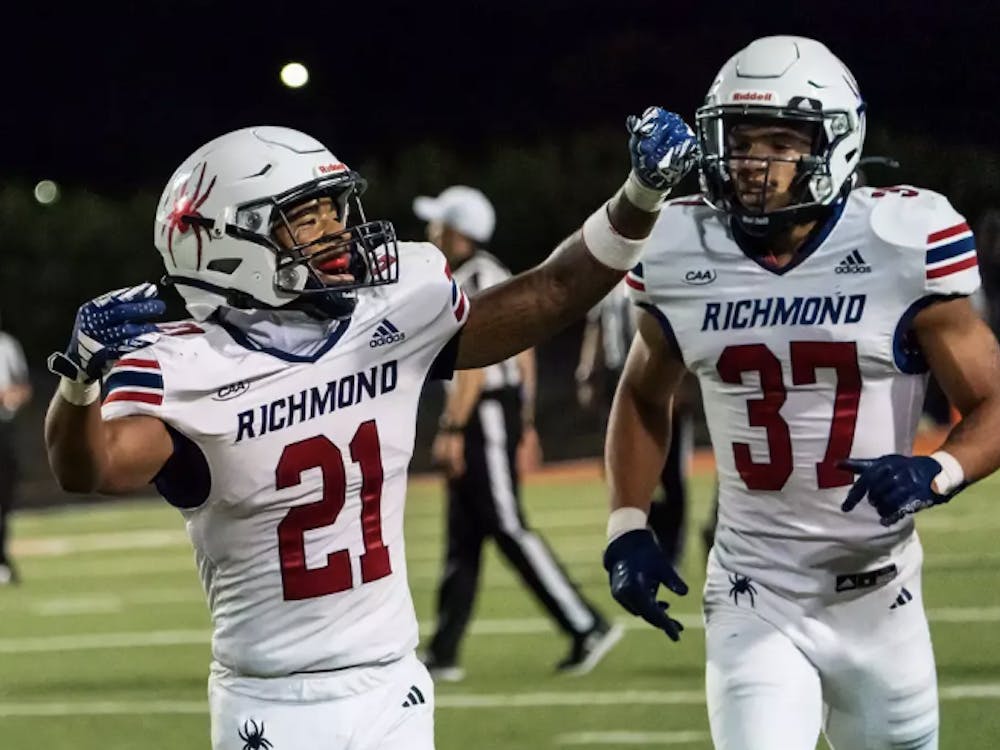
Original artwork by Christine Inzer
Maya Angelou once wrote, “People will forget what you said, people will forget what you did, but people will never forget how you made them feel.”
During my first year at the University of Richmond, I was a part of Sylvia Gale’s first-year seminar "Storytelling and Social Change.” As part of this course, we partnered with Bon Air Juvenile Correctional Center residents to share life stories in an effort to better understand ourselves, each other and our commonalities.
I scripted Angelou’s powerful words in my best handwriting one morning in early April of that year to give to my storytelling partner, Shy, as our parting gift.
Together, Shy and I explored whether and why life narratives matter. We questioned what difference telling, writing and sharing personal stories would make to remedy larger systemic issues and fight for social justice.
I met with Shy for three weeks. We shared stories based on simple prompts such as “describe a place that makes you feel most free” and heavy prompts such as “tell about a time you felt helpless.”
We laughed about our obsession with pancakes and bonded over our passion for music. We talked about our similar friendship bracelets, our older brothers, our mutual interest in working with youth and our hometowns, which are only 30 minutes apart.
The lives Shy and I sought to live felt eerily similar, yet the lives we were actually living felt astoundingly different. In three short weeks, I came to see myself in someone who society had taught me was radically different.
At the end of the semester, Shy and I self-published a book that combined all of our stories. For our final prompt, we chose to answer who inspired us.
I wrote about my mom, while Shy wrote about Maya Angelou. But when we exchanged our final drafts, we were both in awe that we had changed our stories to be about each other.
“Jeanette inspires me because she gave me a different outlook on my life," Shy wrote. "She told me, or you can say helped me, pick the best route to take in my life."
“Though he has been stripped from conventional life for some time, Shy continues to live with great conviction," I wrote. "He inspires me to live more ambitiously, without fear of the unknown. For this, I am grateful."
Enjoy what you're reading?
Signup for our newsletter
I still remember giving Shy the Maya Angelou calligraphy on our last day together. He unfolded the paper slowly and carefully, smoothed out its corners and stared at his favorite quote. His eyes widened and his jaw dropped. He was speechless.
In those moments of silence, Dr. Gale tapped me on the shoulder and whispered that it was time for our class to go. The goodbye between Shy and me was silent, but three years later it remains the most beautiful silence I have ever felt.
I didn’t need Shy to say anything. I knew he felt my love. I felt his.
It has been three years since Shy was released. It has also been three years since I last saw or spoke to him, as communication is prohibited beyond the program because of privacy restrictions.
To this day, I still struggle with the fact that while I was able to return to a life of love, opportunity and privilege, Shy likely returned to the system.
In Virginia, 70% of juvenile inmates are rearrested within three years of their release. Every time I wonder whether Shy made it out, a fear based on that statistic creeps in.
I feel grateful that storytelling enabled Shy and me to develop a genuine connection. But I also feel angry that no matter how many stories we shared, we couldn’t change that Virginia is the No. 1 state in referring youth to the juvenile justice system.
In an effort to grapple with these unsettling emotions, I reconnected with Dr. Gale’s class this year to create a film highlighting the experiences of both UR students and Bon Air residents as part of this storytelling project.
My aim is to break the misconception that the class is about students at a private university -- the majority of whom are white -- mentoring largely black and poor inmates.
Instead, the class is about two young people, both trying to make sense of their lives, coming together to bridge differences and see the worlds within them and around them in a new light.
I want people to know Shy, and the other young men and women in his shoes, like I do.
Though I still have many questions about the long-term impact of these short-term programs, I cannot deny that hearing Shy’s stories has changed me.
Because of Shy, I believe more than ever that stories matter, because the people in those stories matter.
Contact contributor Jeanette Lam at jeanette.lam@richmond.edu.
Support independent student media
You can make a tax-deductible donation by clicking the button below, which takes you to our secure PayPal account. The page is set up to receive contributions in whatever amount you designate. We look forward to using the money we raise to further our mission of providing honest and accurate information to students, faculty, staff, alumni and others in the general public.
Donate Now



